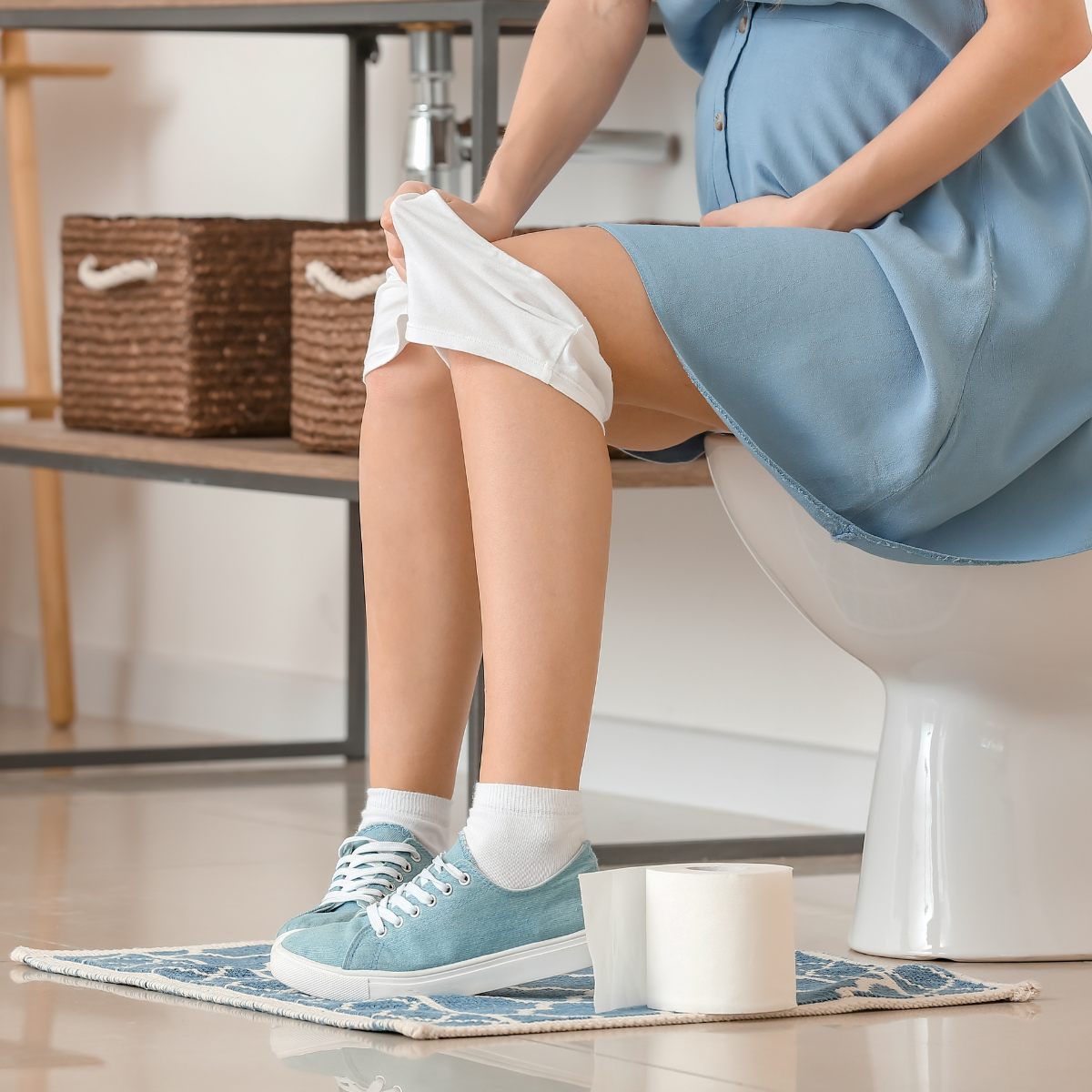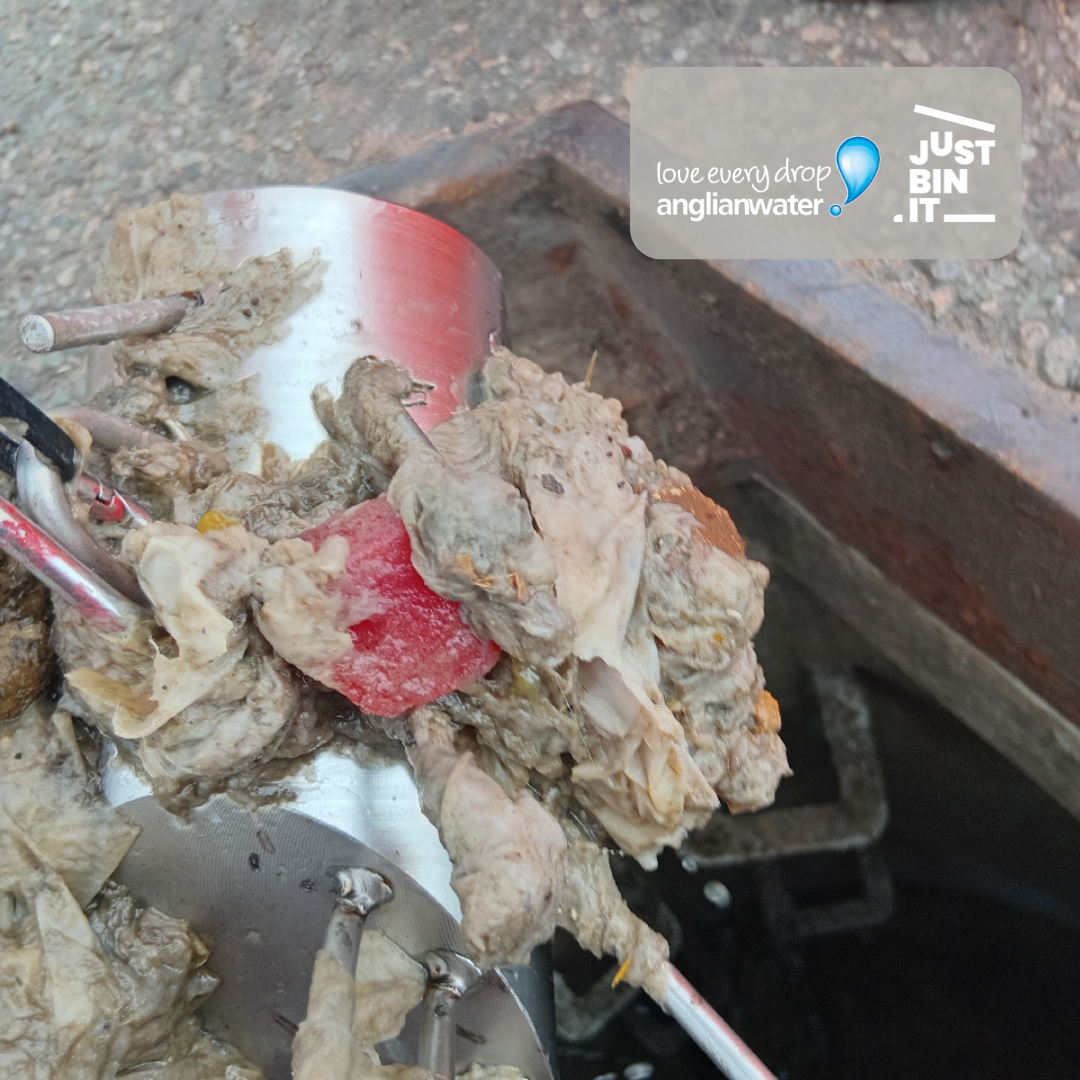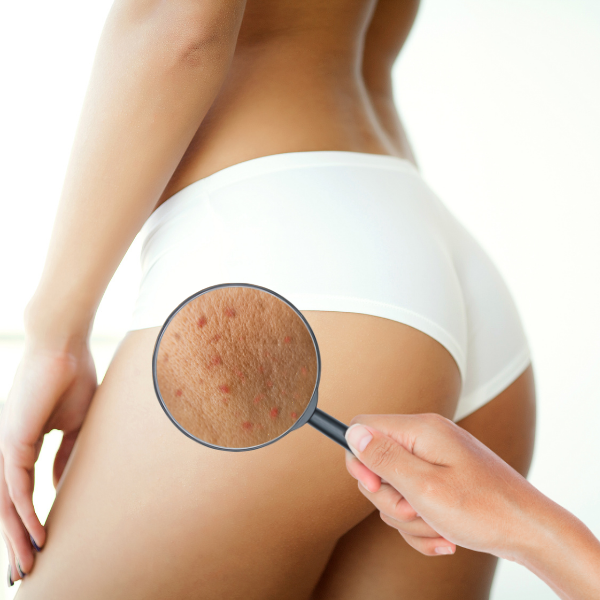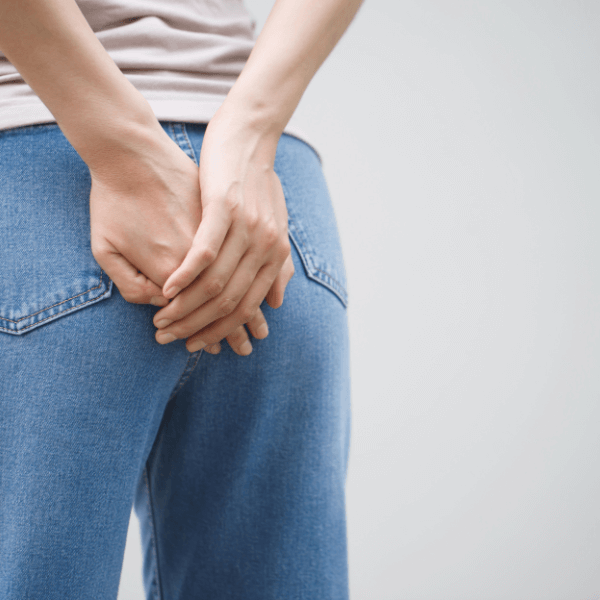From Pregnancy to Postpartum: The Effect of Childbirth on Anus Health

From Pregnancy to Postpartum: The Effect of Childbirth on Anus Health
Childbirth is a journey that brings plenty of change and joy...until those little ones start to walk, that is. Whilst we’re busy with the building blocks of life, our hearts and even our feet (for whatever reason) will start to grow. Pelvises widen, and organs make way for the new arrival, all tiny hands are on deck for this one. But there’s one thing that we carry for life, even after labour, that can often get the brunt of the extra baggage. Yep, our backsides.
From the trials of pregnancy to the intensity of labour and the aftermath of giving birth, there are challenges that many new mothers face concerning their anus health. However, fear not, as we will navigate through these stages together, shedding light on the possible issues, offering solutions, and ultimately ensuring that you feel informed and empowered as you embark on this incredible chapter of parenthood.
So, what’s the craic with our cracks when it comes to bringing another human being into this world? Let’s find out.
Baby on Board and Bums on Alert
Why the Anus Matters in Pregnancy
Pregnancy does quite the number on the body, and the anus is no exception.
As our little munchkins grow, the pressure increases in the pelvic region. This pressure can lead to swollen blood vessels in the rectum, otherwise known as haemorrhoids, which are about as fun as a bout of morning sickness during a heatwave.
Not to mention, the hormone progesterone (which prepares the uterus lining for pregnancy) softens the walls of your veins, making them more prone to swelling. Add constipation to the mix—a common pregnancy perk— and you've got the perfect storm for anal discomfort.
It's important to keep an eye on these changes because, let's face it, when you're planning for a baby, you've got enough on your plate without throwing a pain in the backside into the mix. Looking after your anus health during pregnancy is crucial for both comfort and the prevention of long-term issues.
Pregnancy and Your Anus: What’s Going On?
Baby Bump and Bum Bulge: Haemorrhoids in Pregnancy
As the baby bump flourishes, so might a less welcome bulge: haemorrhoids. These pesky inflamed veins in the rectum or anus are like uninvited guests at your baby shower. They might cause itching, discomfort, or even bleeding, particularly when you're trying to do your business. And lest us forget, with the growing uterus competing for space, the pressure down there can really dial up.
Constipation, a frequent pregnancy companion thanks to hormonal changes, doesn't help the situation either. It's like trying to move a sofa through a doorway. The strain can turn those veins into a swollen, bothersome bunch. But here's the silver lining: there are ways to manage and even prevent haemorrhoids during pregnancy. Simple steps like staying hydrated, eating fibre-rich foods like whole foods, fruit and pulses, keeping that toilet time between 5-10 minutes and not straining on the loo can keep your posterior from turning into a literal pain in the rear.
The Pressure is on: Anal Fissures During Pregnancy
During pregnancy, the term 'crack under pressure' can unfortunately apply quite literally to your nether regions. Anal fissures, small tears in the lining of the anus, can occur when you're passing a hard stool, which is all too common when you're expecting. Let's be real, labour won’t be the first time you hear ‘PUSH, PUSH’ in your pregnancy, it will be on the toilet seat.
The stretching and straining can lead to a fissure, which might make you wince in pain and dread going to the bathroom. No one wants to feel like they're sitting on a cactus disguised as a porcelain throne. These fissures can also cause bleeding and irritation, adding to the already extensive list of pregnancy discomforts.
To avoid turning the bathroom into a chamber of secrets, it's best to keep things moving smoothly. Adequate hydration, fibrous foods, and perhaps a little stool softener can work wonders in keeping you and your bum crack both metaphorically and literally in one piece.
However, when it comes to the unprecedented experience of labour, our anuses can find a (w)hole host of new adventures to tackle.
Labour Pains: The Anus and Childbirth
Pushing Limits: The Stress on our Anus During Labour
Labour is the ultimate workout for your body, and your anus is not sitting out on this week’s PE class. It's game time, and as you push to bring a new life into the world, your anus is under a lot of stress.
Imagine it as the unsung hero that's silently supporting you while you're cheering for the main event. The intense pressure and pushing can lead to haemorrhoids or worsen the ones you were already trying to manage during pregnancy.
And if you thought the baby was the only thing you'd be pushing out, think again. Sometimes a bowel movement joins the party uninvited, thanks to the pressure. It's totally normal, even if it's not talked about in all those unrealistically serene birth stories. Remember, your healthcare team has seen it all, and they're there to support you, not judge you. Keeping this in mind can help ease the stress on both your mind and your bum. In this case, things are better pushed out than kept in.
It's a Stretch: The Effect of Labour on Anus Tissue
If labour was a marathon, the finish line is a tiny human being in your arms. Just as athletes might endure muscle strain, your anus tissues are put through the wringer as well. The stretching doesn't end with the arrival of your bundle of joy—your anus has been doing some heavy lifting too.
The tissues around the area are stretched beyond their comfort zone, which can lead to swelling and soreness. Imagine doing the splits when you haven't stretched since that liquor infused high school party —that's the kind of surprise your rear end is dealing with.
In some cases, this can also lead to postpartum anal fissures or worsen existing ones. It's a tough job, but there's good news: the body is incredibly resilient. With time and care, the tissues can recover. In the meantime, a little ice, soothing sitz baths and a gentle way to keep clean, like using Wype’s soothing and calming gel will help ease the pain.
The Immediate Aftermath: Post-Labour Anus Health
Recovering Down There: First Steps in Anus Health After Labour
After labour, as you're cradling your new bundle of joy, you might also need to nurse your backside back to health. The first steps in recovering your anus health post-labour can feel like a delicate dance. It's important to keep the area clean, which might mean boosting your usual toilet paper with a gentle yet effective cleansing gel. You're looking to avoid any harsh rubbing like you'd avoid late-night baby advice from a stranger.
A sitz bath can also be a godsend, offering a soothing dunk for your tender tush. As for keeping things moving, a stool softener might become your new best friend, because the last thing you want after pushing out a baby is to push out anything else with effort. And don't forget about the power of padding: a cushion or a donut pillow can make sitting down feel less like a punishment and more like the break you deserve.
Take it slow and remember that your recovery is just as important as caring for your newborn.
Long-Term Effects: Life with a Postpartum Bum
Not Just a Memory: Chronic Conditions After Childbirth
While many postpartum symptoms fade as the months pass, some new mothers might find that certain conditions decide to stick around like an overextended houseguest. Chronic conditions after childbirth can include stubborn haemorrhoids that don't want to pack their bags or fissures that turn into recurring issues. It's as if they're nostalgic for the pregnancy days and simply can't let go.
These conditions can be frustrating and uncomfortable, turning everyday activities into bush tucker trials. But it's not just about discomfort—chronic anal conditions can also lead to more serious health issues if left unchecked. It's important to keep an open dialogue with your loved ones and healthcare provider about any ongoing symptoms. They can offer guidance and treatment options to manage these conditions long-term.
Just like you’re adjusting to your new normal with a baby, your body is finding its new balance, too. With the right care and attention, you can work toward healing and comfort.
Living with the Aftermath: Less Talked about Long-term Anus Conditions
In the postpartum period, some long-term conditions related to anus health don't get the spotlight they deserve, often because they're hush-hush topics in casual conversation. Conditions like prolapse, where the structures supporting the anus may weaken, can be a literal letdown. It's the kind of party foul that no one expects after childbirth.
Incontinence is another issue that's less discussed but can have a significant impact on a new mom's life. Sneezing or laughing leading to accidents isn't exactly the kind of surprise you want. Nobody wants a bit of dust up their nose to end up causing a muddy walk in the play park. It's important to understand that these conditions are more common than you might think and nothing to be ashamed of. Seeking help and talking about them can lead to effective management strategies.
Pelvic floor therapy, exercises, and sometimes surgery can improve these conditions. Remember, your health matters, and addressing even the less-glamorous aftermath of childbirth is a step towards reclaiming your body and comfort.
Postpartum pelvic floor exercise to try
If you’ve found that labour has led your backside to take all the wrong turns, why not try the following pelvic floor exercise to strengthen those lower body muscles?
- Slowly squeeze the muscles of your anus, as if you were trying to hold in wind.
- Hold for 5-10 seconds, then release slowly. Repeat 10 times.
- Perform quicker, shorter squeezes. Repeat 10 times.
- Squeeze then clear your throat as if you were coughing. Repeat 3 times.
- Aim for 5-6 sets of this a day.
Results may come slowly, but after some time, you’ll notice a difference. If not, nothing to worry about, just pop down to see a health professional and they’ll be able to help you out in the most appropriate way possible.
Want to go full whammy on pelvic floor exercises? Here’s an 8-minute YouTube video to follow along to!
Wrapping It Up: The Importance of Anus Health Awareness
As we wrap up this journey from pregnancy to postpartum, it's clear that anus health shouldn't be a taboo topic, but rather an important part of the conversation. Awareness is key because ignoring the issue or blushing away from it won't make it any less real.
Understanding the potential issues and knowing how to seek treatment can make a significant difference in a new mother's life. It's about comfort, it's about health, and it's about taking care of every part of you—even the parts that aren't as fun to talk about at dinner parties.
If you’re looking for a way to keep gently clean postpartum, why not give Wype a go? With soothing aloe, calming chamomile and moisturising coconut, there’s no better way to treat that sensitive tushy after childbirth.
FAQs



Thank you so much for sharing this incredible blog! I truly appreciated it!